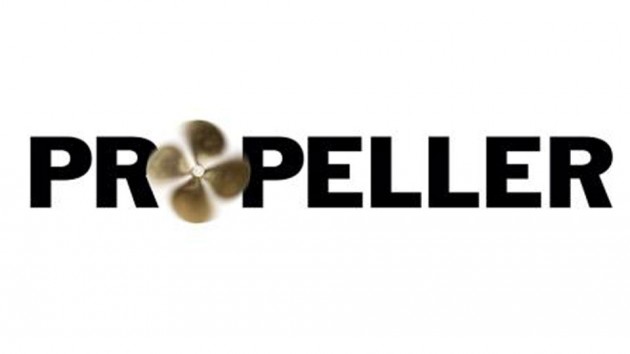
February 4, 2015, by Peter Kirwan
Propelling Edward III (Propeller) @ Wimbledon College of Arts
I was privileged this weekend to take part in an experimental two-day event at Wimbledon College of Arts with Propeller, a company on whom I’ve been working for some time (as well as providing talks for at Nottingham Theatre Royal). The event was designed as a collaborative venture between practice and research as part of the beginnings of a process of exploration of Edward III, a play that Edward Hall plans to direct as the new opening salvo of a revised Rose Rage, the company’s previous take on the Henry VI plays. As Edward III is one of ‘my’ plays – a generally accepted Shakespeare collaboration that sits on the fringe of the canon – I was invited to take part.
The question of authorship was off the table from the start, although the overwhelming emphasis (particularly in the closing session) was on the play’s relationship to the Shakespeare canon in a positive sense. Instead, the event was designed to explore the potential offered by the play for performance. I kicked off the academic papers with a talk on ‘The Performability of Edward III‘ in which I offered a spatial reading of the play as constructed around the idea of siege warfare. The play’s language and situations are full of metaphors of entrapment, encircling, surrounding, besieging, and for me this is what unites the plot featuring the Countess of Salisbury with the battle scenes. The paper seemed to go down well, and I was pleased to see actors on the second day trying out some of the implications of this reading. Other papers were offered by Jean Howard on the women of the play, particularly pulling out their kinship with plays by Robert Greene, Paul Allen on the history behind the play and the associations between the Black Prince and Shakespeare’s Hal, and David Lindley in a brilliantly performative introduction to the music of marches, illustrating the difference between different rhythms and tempos for the communication of troop movements.
Alongside this, a company of Propeller stalwarts (including several from the earliest days of the company) rehearsed selected scenes: Scene 1 (the agreement to go to war), Scene 3 (Edward’s pursuing of the Countess) and Scene 13(ish), the scene of Audley and the Black Prince beset by unthinkable odds and an array of increasingly smug Heralds. This was a rare opportunity to see scenes being put together from the first building blocks: over the two days there were seated read-throughs (working closely on the text, its meanings and rhythms), performed stagger-throughs and reasonably fully-blocked moments including song and props. In the spirit of the event I don’t want to discuss much the actors’ work, particularly as I was able to have several principled discussions with members of the company about how it felt to have contributors in the room. It’s an exposing and potentially terrifying situation for an actor and, while the company were utterly generous and gracious, I’d also wish to do them the courtesy of respecting their process.
With that said, the beauty of this for a scholar was seeing so many options worked out, as actors attempted different (often conflicting) readings of lines and adjustments in tone, responding to what worked and what didn’t. The ensemble also rotated, giving us the chance to see both Dugald Bruce-Lockhart and Richard Clothier as King Edward in Scenes 1 and 3 respectively, and James Tucker and Karl Davies as very different versions of the Black Prince in Scenes 3 and 13. Dominic Gerrard and Robert Hands played heralds and led the breathtaking choral work, Simon Scardifield explored Artois (as well as giving a lively and thoroughly enjoyable opening talk about his time in the company), David Acton played Audley and Chris Myles (the only actor, apparently, who has been in every single performance Propeller has ever given, Pockets aside) took on the more comic role of Lodowick. All of the actors tried out different roles throughout the three days also and, while I’d love to talk about the options opened up, the overwhelming sense was one of the joy of exploration. The intelligence and depth of the sight-reading, the attentiveness to the tiniest nuance of the text, and the speed with which words became action made this feel like the most dynamic and engaged textual class I’ve ever sat in on.
This was a wonderful event and one I’m delighted to have been a part of. While I’ll mostly look forward to the production itself being realised in the not-too-distant future, I hope that this kind of project can become an ongoing occurrence in its own right, integrating scholarship and practice. In many ways, this event convinced me that the work of academics and actors is fundamentally not too dissimilar, apart from in the platform to which textual explorations tend, and I’d love the chance to see this followed through.
No comments yet, fill out a comment to be the first

Leave a Reply